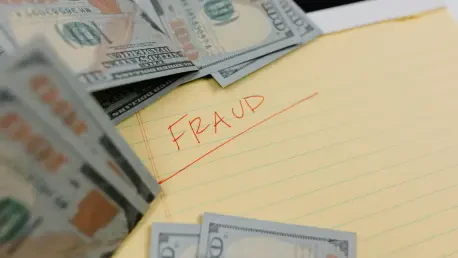In a striking case of betrayal within the healthcare sector, a former hospital executive has been held accountable for misappropriating a staggering $1.44 million from a prominent New York medical institution. Dr. Michael Lucchesi, once a respected chief medical officer and chairman of Emergency Medicine at SUNY Downstate Medical Center, was recently sentenced to one to three years in prison after pleading guilty to grand larceny. This incident has not only shocked the medical community but also raised serious questions about trust and oversight in public institutions. The scale of personal spending, funded by resources meant for patient care, paints a troubling picture of accountability lapses. As details of the case unfold, the broader implications for financial governance in healthcare settings come into sharp focus, urging a reevaluation of how such breaches can be prevented in the future.
Legal Consequences and Case Details
Uncovering the Misconduct
The depth of Dr. Michael Lucchesi’s financial misconduct came to light through a meticulous audit by SUNY, revealing a pattern of abuse spanning several years. Using a business credit card designated for clinical practice expenses through University Physicians of Brooklyn, Lucchesi diverted approximately $1.44 million for personal gain. The expenditures were astonishingly varied, ranging from lavish pet care services to premium event tickets and personal travel. This misuse of funds, which could have supported critical medical services, was a profound violation of the trust placed in him as a senior executive. The Brooklyn District Attorney’s Office pursued the case with rigor, ensuring that the full extent of the embezzlement was exposed. Legal proceedings culminated in a guilty plea in July, followed by a prison sentence that underscores the severity of the crime committed against a vital public institution.
Scope of Personal Expenditures
Delving into the specifics of Lucchesi’s spending, the numbers are staggering and reveal a blatant disregard for ethical boundaries. Over $176,000 was spent on pet care, including a significant $120,000 directed to a luxury pet resort in New Jersey. Personal travel expenses accounted for $348,000, while fitness memberships and training consumed $109,000 at a well-known sports club. Additionally, $92,000 went toward premium tickets for events, $52,000 on catering, and $46,000 on tuition for his children. Cash advances totaling $115,000, along with miscellaneous purchases like online shopping and electronics, further compounded the misuse. Each of these transactions diverted resources from SUNY Downstate Medical Center, an institution dedicated to serving vulnerable communities. The sheer audacity of such spending highlights the critical need for stringent financial controls to safeguard public funds from similar exploitation in healthcare environments.
Institutional Impact and Reform Measures
Consequences for Patient Care
The ripple effects of Lucchesi’s actions extended far beyond personal enrichment, striking at the heart of SUNY Downstate Medical Center’s mission to provide lifesaving care. Brooklyn District Attorney Eric Gonzalez emphasized that the embezzled $1.44 million could have been allocated to essential patient services, medical equipment, or staff support. Instead, these funds were squandered on luxury and discretionary items, undermining the institution’s ability to serve its community effectively. New York State Inspector General Lucy Lang described the act as a shocking abuse of trust, particularly given Lucchesi’s role in caring for underserved populations. This breach not only damaged the hospital’s financial stability but also eroded public confidence in healthcare leadership. The case serves as a stark reminder of how individual misconduct can jeopardize the well-being of countless patients relying on such institutions for critical care.
Steps Toward Accountability
In response to this egregious violation, SUNY Downstate has taken decisive steps to prevent future incidents of financial misconduct. SUNY Chancellor John B. King Jr. outlined the implementation of stricter internal controls and comprehensive oversight systems designed to detect and deter similar abuses. These reforms reflect a broader commitment to safeguarding public resources within the healthcare sector. Additionally, Lucchesi agreed to restitution amounting to $720,000, with payments directed to both the New York State Department of Taxation and Finance and the hospital’s clinical practice. While these measures cannot undo the damage done, they signal a proactive stance on accountability. The consensus among involved parties, including legal authorities and institutional leaders, points to the necessity of robust governance to protect public institutions. This incident has catalyzed a renewed focus on integrity, ensuring that trust in healthcare administration is rebuilt through systemic change.









